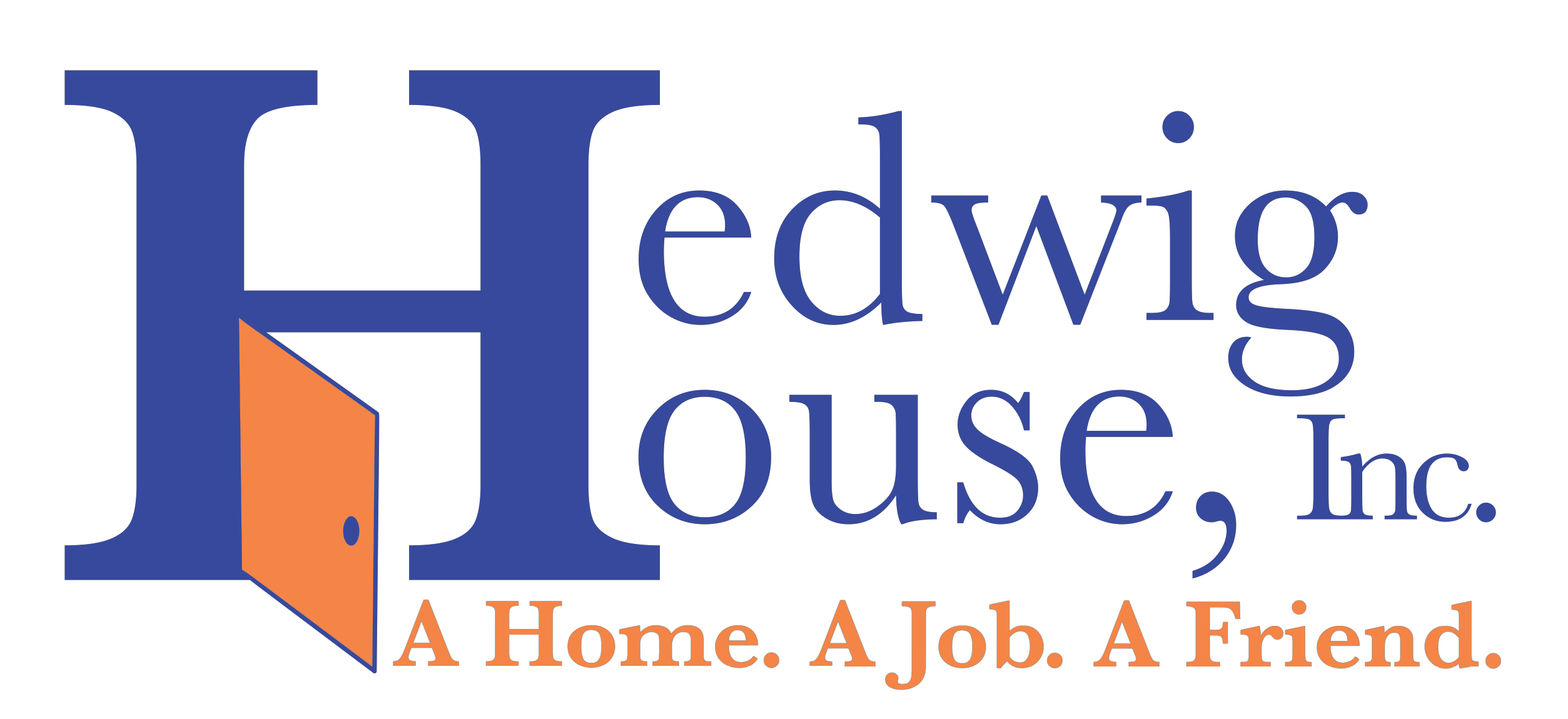H.O.P.E (Housing-Occupation-Personal-Education) Academy

Hedwig House offers HOPE (Housing-Occupation-Personal-Education) Academy, a psychiatric rehabilitation program designed for individual’s ages 18-30 living with a severe, persistent mental illness. HOPE Academy is based out of our Colmar office, but most activity takes place in the community.
Students who enroll at HOPE Academy work with their practitioner to formulate a goal in the living, learning, working, and/or social domains. Over the course of 1-2 years, our students work through the phases of the Boston University (BU) Model of Psychiatric Rehabilitation.
Readiness Assessment: Students begin to get to know their practitioner. Initial one-on-one meetings are designed to build a trusting relationship where students get to know their practitioner and get accustomed to meeting one-on-one, typically in the community (i.e. libraries, book stores, coffee shops). The student also works with their practitioner to brainstorm a goal they are interested in working towards.
Readiness Development: Once the student has become more comfortable with their practitioner, the work begins! The Readiness Development phase is designed to bring up important topics to determine the students level of ‘readiness to change’. Topics such as fears, values, strengths, capabilities, and preferences are discussed in order to increase personal awareness. Readiness Development helps our students learn more about themselves and begin to think about topics which will help them reach their goal.
Goal Choosing: At this point, our students typically have a goal in mind which they want to work towards. Goal Choosing is about narrowing this large scale goal in one of the life domains (living, learning, working, social), into an attainable, realistic goal for the student. For instance, a student might come to HOPE Academy with the idea of a working goal. Goal Choosing is designed to help our students figure out where they would like to work and why. A variety of topics are discussed in this phase which are catered to each students’ individual goal.
Goal Achieving: Goal Achieving is the action phase. Students work with their practitioners to put their goal into motion. For instance, applying to jobs, exploring the community for potential apartments, travel training, campus visits, interviews, practicing skills, and more. By this phase, our students have a trusting relationship with their practitioner and are getting closer to achieving their goal. Students typically stay in Goal Achieving until they reach their goal or acquire the skills needed to reach their goal.
Goal Keeping: This phase is designed to work out the kinks! Students who reach Goal Keeping have typically met their goal. This phase helps students overcome any obstacles they might face, such as: talking to their landlord, requesting off from work, figuring out a new bus route, inviting a friend over, etc. Students in Goal Keeping are working to maintain their goal with the help of their practitioner.
If you or someone you know is interested in attending Hedwig House, please download our referral form

Students who enroll at HOPE Academy work with their practitioner to formulate a goal in the living, learning, working, and/or social domains. Over the course of 1-2 years, our students work through the phases of the Boston University (BU) Model of Psychiatric Rehabilitation.
Readiness Assessment: Students begin to get to know their practitioner. Initial one-on-one meetings are designed to build a trusting relationship where students get to know their practitioner and get accustomed to meeting one-on-one, typically in the community (i.e. libraries, book stores, coffee shops). The student also works with their practitioner to brainstorm a goal they are interested in working towards.
Readiness Development: Once the student has become more comfortable with their practitioner, the work begins! The Readiness Development phase is designed to bring up important topics to determine the students level of ‘readiness to change’. Topics such as fears, values, strengths, capabilities, and preferences are discussed in order to increase personal awareness. Readiness Development helps our students learn more about themselves and begin to think about topics which will help them reach their goal.
Goal Choosing: At this point, our students typically have a goal in mind which they want to work towards. Goal Choosing is about narrowing this large scale goal in one of the life domains (living, learning, working, social), into an attainable, realistic goal for the student. For instance, a student might come to HOPE Academy with the idea of a working goal. Goal Choosing is designed to help our students figure out where they would like to work and why. A variety of topics are discussed in this phase which are catered to each students’ individual goal.
Goal Achieving: Goal Achieving is the action phase. Students work with their practitioners to put their goal into motion. For instance, applying to jobs, exploring the community for potential apartments, travel training, campus visits, interviews, practicing skills, and more. By this phase, our students have a trusting relationship with their practitioner and are getting closer to achieving their goal. Students typically stay in Goal Achieving until they reach their goal or acquire the skills needed to reach their goal.
Goal Keeping: This phase is designed to work out the kinks! Students who reach Goal Keeping have typically met their goal. This phase helps students overcome any obstacles they might face, such as: talking to their landlord, requesting off from work, figuring out a new bus route, inviting a friend over, etc. Students in Goal Keeping are working to maintain their goal with the help of their practitioner.
If you or someone you know is interested in attending Hedwig House, please download our referral form


